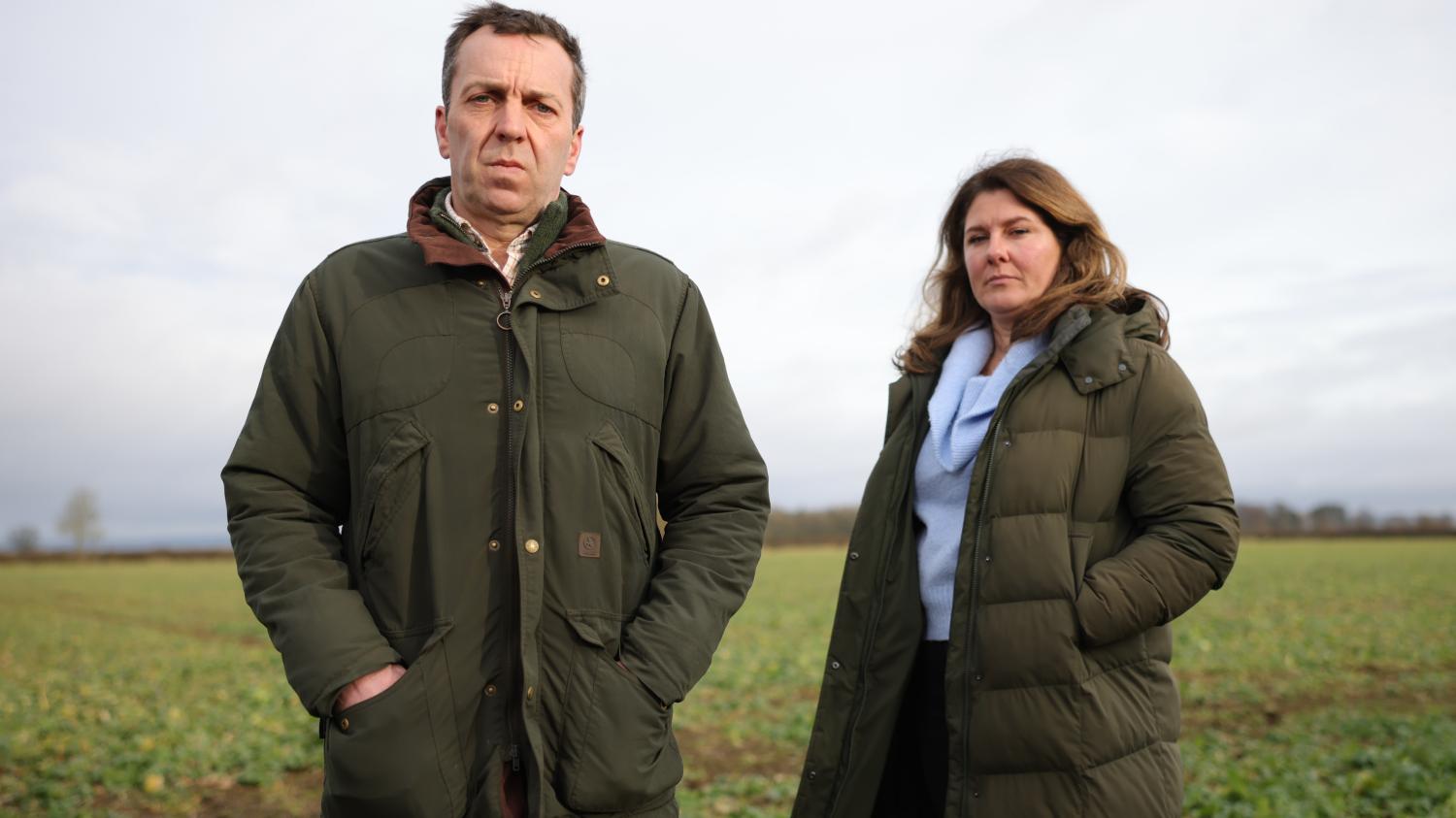The Times, Ben Ellery
3rd February 2023

TIMES PHOTOGRAPHER JAMES GLOSSOP
For generations Rob Sturdy’s family have tended their farm and produced wheat, rapeseed oil and barley in the town of Malton, celebrated by chefs as Yorkshire’s food capital.
However, he and his family face the prospect of losing the farm and their home after the landlord, a trust that counts Helena Rees-Mogg, the wife of the MP for North East Somerset, as a director, applied to kick them off almost half the land to make way for more lucrative solar panels.
Sturdy, whose grandfather Guy, moved to Eden Farm in 1954, said: “We were absolutely stunned when they told us they wanted to turn us off the land. They showed us a map and it was horrifying. Almost half of it was covered in red where they wanted to place solar panels. My wife burst into tears.
“We are not against solar panels and renewable energy, but this land is rated as having good soil for growing crops — there is other land that is not good that they could be using for solar panels. If we lost half the land we wouldn’t be able to afford to keep the farm going. Not to mention a few years ago we spent £50,000 to £60,000 on a new grain shed that would become useless. It is simply putting profits before people.”
Sturdy’s farm is 240 acres and under the proposal 110 acres would be lost to solar panels. The application to convert the land was submitted last month and published yesterday.
Sturdy’s tenancy agreement, signed in 1971 by his late father John, allowed for the land to pass through three generations. Sturdy said that 60 per cent of the land earmarked for development fell into farmland designated “best and most versatile (BMV)”, which is considered to have better-quality soil.
While Jacob Rees-Mogg was said to support putting solar panels in fields as business minister, he fell out with Liz Truss over the issue when she was prime minister.
Truss sought to redefine BMV to include more agricultural land, but Rees-Mogg believed that telling landlords what they could do with their land was un-Conservative.
Planning guidance says that development on BMV land should be avoided.
Sturdy, 51, believes the trust will be unable to resist further attempts by Harmony Energy, the solar panel company, to convert more land. Green energy companies will pay landowners £800 to £1,200 per acre a year to site solar panels, according to estimates.
Sturdy said that was about ten times what it received from agricultural farmers. His land is owned by the Fitzwilliam Trust Corporation, which made £14,274 in profit last year, down from £149,655 in the 12 months previously.
Mrs Rees-Mogg, one of its five directors, is the daughter of the poet and aristocrat Somerset de Chair and Lady Juliet Tadgell, who is also a director of the trust. Tadgell is heir to the Fitzwilliam fortune and has an estimated net worth of £45 million, all of which her daughter stands to inherit.
Sturdy’s wife Emma, 44, has been instrumental in driving a campaign against the solar proposal. She said: “In this country we have a rich history of farming and we are in danger of it being lost. If we do not look after our tenant farmers then we will not be looking after the backbone of farming.”
About a third of farmed land in England is tenanted. Last year, a review by Baroness Rock found “demands from non-agricultural land use such as solar, development, bioenergy, tree planting and biodiversity improvements could take land out of production”.
The Tenant Farmers Association is backing the campaign. George Dunn, its chief executive, said: “It is simply unacceptable that the land occupation rights enjoyed by the Sturdys along with other tenant farmers can be tossed to the side so easily. Meeting our renewable energy targets by moving good land out of agriculture into solar parks rather than using the vast area of roofs within our country’s built estate and other brownfield sites is simply madness.”
The Fitzwilliam Trust Corporation said Sturdy had been offered “an index-linked annual income, above and beyond statutory compensation, which we believe would provide the farm business with the financial security it needs to continue farming a smaller area for the foreseeable future. We recognise the impact the development would have on the tenant, and remain committed to helping them adapt their farming business for the future if the scheme is granted permission.”
Sturdy said the offer was “nowhere near enough” and would make the farm financially unviable.
Harmony said it had chosen the land because it was near an energy substation that “has sufficient capacity to allow the solar farm to connect”.
The company added: “A lengthy design and public consultation process has been undertaken over the past two years to refine the overall area and produce an optimum layout. This means we’ve reduced the development area from 296 acres to 130 acres and have excluded fields which comprise the greatest quantity of high-grade, agricultural land.”

